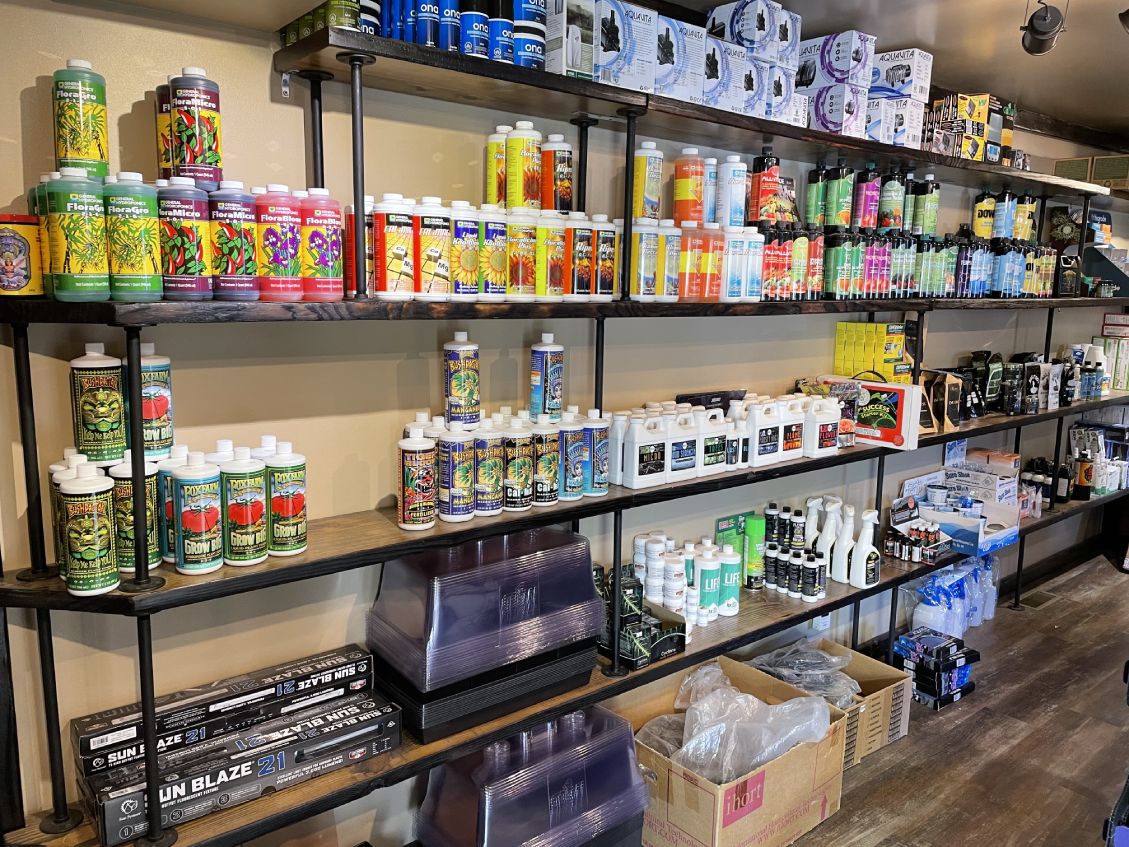The Indoor Earthworm Way: A Game-Changer in Planting Techniques
The Indoor Earthworm Way: A Game-Changer in Planting Techniques
Blog Article
Taking Advantage Of the Power of Hydroponics: a Deep Dive Into Uses and Various Types
In the world of modern-day farming, hydroponics has arised as a method that tests traditional farming methods by using a water-efficient and space-saving alternative. The use of hydroponic systems opens a world of possibilities for cultivating plants in varied settings, inevitably impacting food production and sustainability. As we browse with the elaborate landscape of hydroponics, exploring its different types and applications, a deeper understanding of its possible to change farming practices and address global food safety worries starts to unfold.
Benefits of Hydroponic Farming
Hydroponic farming uses various advantages over typical soil-based farming. One of the main benefits is water performance; hydroponic systems utilize up to 90% less water compared to standard farming approaches.
Furthermore, hydroponic farming enables better control over nutrient degrees, causing faster plant development and higher yields. By offering crucial nutrients directly to the plant origins, hydroponic systems promote much healthier and more durable plant growth. Furthermore, the regulated atmosphere of hydroponic systems minimizes the risk of conditions and insects, reducing the demand for unsafe chemicals and herbicides.

Common Sorts Of Hydroponic Equipments
One prevalent type is the Deep Water Society (DWC) system, where plant roots are submerged in a nutrient solution. The Ebb and Circulation system, also recognized as Flooding and Drainpipe, occasionally floods the plant roots with nutrient solution prior to draining it. Wick systems, the most basic type of hydroponics, utilize a wick to passively supply nutrition option to the plant origins.
Nutrient Movie Method (NFT) System

One of the crucial advantages of the NFT system is its water efficiency. The Indoor Earthworm. Considering that the nutrient service is recirculated in a closed system, this approach uses considerably much less water compared to conventional dirt farming. Furthermore, the NFT system is space-efficient, making it excellent for indoor farming or in locations with minimal space for standard farming
Nonetheless, the NFT system calls for careful tracking and upkeep to make certain the continual circulation of read water and nutrients. Any kind of interruption in the flow can swiftly influence plant wellness. Generally, the NFT system provides a effective and sustainable way to grow plants hydroponically, especially for crops that flourish in well-oxygenated root environments.
Deep Water Society (DWC) System
Moving from the Nutrient Film Method (NFT) system, the Deep Water Culture (DWC) system is a hydroponic technique that involves suspending plant origins straight in a nutrient remedy. Unlike NFT, where origins are continuously exposed to a slim film of nutrient solution, DWC plants have their roots submerged in a reservoir full of oxygenated nutrition water. The roots dangle in the nutrient solution, allowing for straight uptake of water and vital nutrients.
One of the crucial benefits of the DWC system is its simpleness and low upkeep needs. The continuous accessibility to oxygen and nutrients promotes quick growth and greater returns. DWC systems call for sufficient aeration to prevent origin rot and resource guarantee optimal nutrient absorption. Normal surveillance of pH levels and nutrient focus is vital to avoid inequalities that might harm plant wellness.
Aeroponic System
A cutting-edge method in hydroponics growing, the Aeroponic System makes use of a misting or misting system to provide nutrients directly to plant roots suspended in the air. This system is known for its capacity to promote quick growth and reliable nutrient uptake due to the direct shipment of nutrients to the roots, permitting the plant to concentrate its power on growth rather than browsing for nutrients.
One of the crucial advantages of aeroponics is its water effectiveness, as the system utilizes substantially less water contrasted to typical soil-based farming methods. Furthermore, the accurate delivery of nutrients straight to the origins can result in greater returns and faster growth prices. While aeroponics can be a lot more complex to establish up and keep contrasted to other hydroponic systems, its capacity for enhanced plant development and effectiveness makes it a prominent selection for hydroponic fanatics and industrial farmers looking for optimal outcomes.
Final Thought
Finally, hydroponic farming supplies countless advantages and various kinds of systems to pick from. The Nutrient Film Method (NFT) system, Deep Water Society (DWC) system, and Aeroponic system are amongst one of the most usual methods used in hydroponics. Each system has its own advantages and constraints, making it vital for farmers to thoroughly consider their demands and preferences before choosing one of the most appropriate system for their crops.
Unlike other hydroponic systems where plants are submerged in a nutrient remedy, in the NFT system, the origins are exposed to the water just in a superficial movie.Moving from the Nutrient Movie Method (NFT) system, the Deep Water Culture (DWC) system is a hydroponic approach that involves suspending plant origins straight in a nutrient service.An innovative approach in hydroponics cultivation, the Aeroponic System uses a fogging or misting system to provide nutrients straight to plant roots put on hold in the air. The Nutrient Movie Technique (NFT) system, Deep Water Culture (DWC) system, and Aeroponic system are amongst the most common techniques made use of in link hydroponics. Each system has its very own advantages and restrictions, making it essential for farmers to very carefully consider their demands and preferences before choosing the most ideal system for their crops.
Report this page